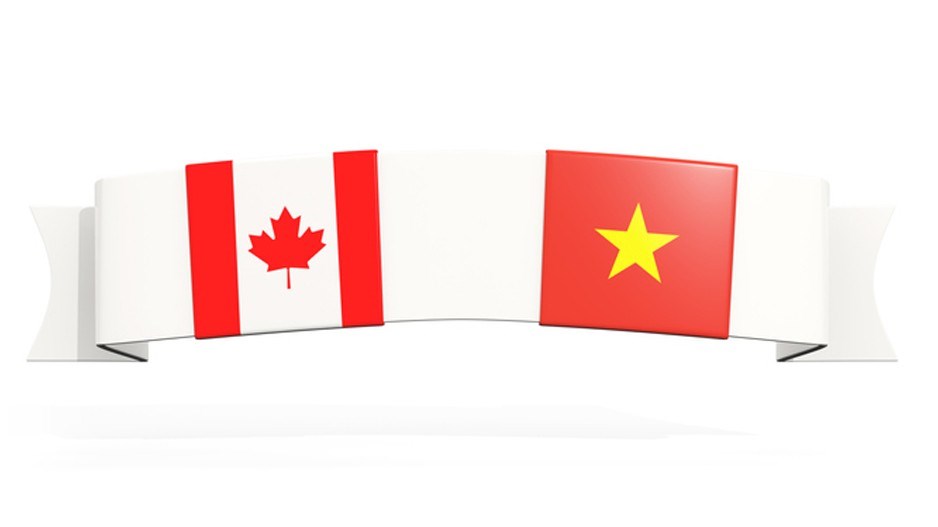Canada and Vietnam have shared a longstanding relationship based on trade, development and immigration. Over the past several years, this relationship has deepened considerably.
With Vietnam’s new national leadership put in place for 2021 to 2026, the Canada-ASEAN Business Council (CABC) urges Canada to secure its economic interests with Vietnam as a key tenet of Canada’s evolving Indo-Pacific strategy.
Since 2015, Vietnam has been Canada’s largest trading partner in Southeast Asia with two-way trade reaching a record $11.2 billion in 2020. With the Comprehensive and Progressive Agreement for Trans-Pacific Partnership (CPTPP), Canadian and Vietnamese exporters and investors now enjoy increased market access and tariff reduction in a rules-based trading environment.
Two-way trade has increased by 12% over 2019 and by 37% compared with 2018, when the CPTPP began to take effect.
With a rapidly growing population that is expected to reach 120 million by 2050 and a strong GDP forecast of 6.5% growth in 2021, Vietnam is a high-potential market for Canadian companies especially in key industries such as agri-food.
Aside from the trading of goods, a wide range of opportunities is available in areas such as investments, financial services, infrastructure development, supply chain diversification, technology and human capital development. To fully capture these opportunities and ensure inclusive growth, both governments should boost their support for small and mid-size enterprises to maximize the benefits of trade deals such as the CPTPP.
At its recent 14th National Assembly, the Vietnam government finalized a political transition for the 2021 to 2026 period.
Vietnam remains anchored into its four-pillars leadership structure where political responsibilities are shared between the positions of general secretary of the Communist Party of Vietnam (CPV), president, prime minister and chair of the National Assembly.
Nguyen Phu Trong was re-selected as the CPV’s general secretary while Nguyen Xuan Phuc, who served as prime minister from 2016 to 2021, takes on the role of president. The country’s new prime minister is Pham Minh Chinh, who previously was the head of the CPV Central Organizing Committee and a deputy minister of public security.
The National Assembly chair is filled by Vuong Dinh Hue, a former deputy prime minister and minister of finance.
It is expected that the new Vietnamese government will continue its predecessors’ economic growth policies. This would include prioritizing foreign investment attraction, new multilateral trade deals, and other reforms to further integrate Vietnam with the global economy.
In foreign policy, Vietnam will likely look to avoid choosing sides between economic superpowers while engaging through multilateral institutions such as ASEAN (the Association of Southeast Asian Nations), the United Nations and with other middle power countries like Canada to provide strategic options.
This political stability and policy continuity has instilled confidence among the domestic and foreign private sectors and observers, particularly due to Vietnam’s excellent domestic COVID-19 response and economic growth despite the pandemic’s impact.
The CABC acts as the voice of the Canadian private sector in ASEAN, and our members, including many of Canada’s leading firms such as Manulife, have a significant and longstanding presence in Vietnam, and many more companies are following suit.
Similarly, Vietnam’s most innovative companies such as automotive manufacturer VinFast are prioritizing investing in and selling to the Canadian market.
Canada’s and Vietnam’s commitment to multilateral trade through the CPTPP and critical new opportunities such as a potential Canada-ASEAN free trade agreement positions Vietnam as an essential partner for Canada in the decades ahead.
As Canada looks to develop an Indo-Pacific strategy, we urge public policymakers and business leaders to prioritize this relationship by:
•increasing support to small and mid-size enterprises looking to take advantage of the CPTPP;
•expanding Canada-Vietnam business collaborations in high-growth sectors such as agri-food, aerospace, infrastructure, financial services and digital economy; and
•negotiating a Canada-ASEAN free trade agreement to increase the overall opportunities for Canada in Southeast Asia. •
Geoff Donald is the CABC’s advocacy chair and managing director at Asia Engagement Consulting Group. This column was co-written with Wayne Farmer, CABC president and managing partner at Islemount Capital Advisers, and Thi Be Nguyen, CABC’s chair of Canada activities and manager at the National Bank of Canada’s office of the president and philanthropy.




